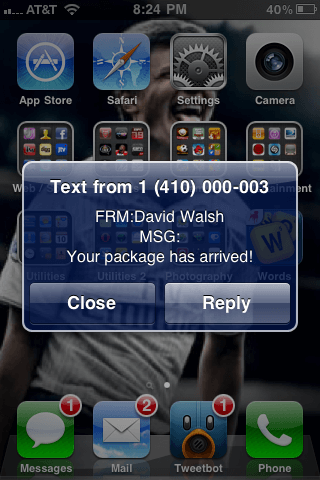PHP IMDB Scraper
It's been quite a while since I've written a PHP grabber and the itch finally got to me. This time the victim is the International Movie Database, otherwise known as IMDB. IMDB has info on every movie ever made (or so it seems). Their HTML source code is easy to parse so this one was a piece of cake.
The PHP
//url
$url = 'http://www.imdb.com/title/tt0367882/';
//get the page content
$imdb_content = get_data($url);
//parse for product name
$name = get_match('/<title>(.*)<\/title>/isU',$imdb_content);
$director = strip_tags(get_match('/<h5[^>]*>Director:<\/h5>(.*)<\/div>/isU',$imdb_content));
$plot = get_match('/<h5[^>]*>Plot:<\/h5>(.*)<\/div>/isU',$imdb_content);
$release_date = get_match('/<h5[^>]*>Release Date:<\/h5>(.*)<\/div>/isU',$imdb_content);
$mpaa = get_match('/<a href="\/mpaa">MPAA<\/a>:<\/h5>(.*)<\/div>/isU',$imdb_content);
$run_time = get_match('/Runtime:<\/h5>(.*)<\/div>/isU',$imdb_content);
//build content
$content.= '<h2>Film</h2><p>'.$name.'</p>';
$content.= '<h2>Director</h2><p>'.$director.'</p>';
$content.= '<h2>Plot</h2><p>'.substr($plot,0,strpos($plot,'<a')).'</p>';
$content.= '<h2>Release Date</h2><p>'.substr($release_date,0,strpos($release_date,'<a')).'</p>';
$content.= '<h2>MPAA</h2><p>'.$mpaa.'</p>';
$content.= '<h2>Run Time</h2><p>'.$run_time.'</p>';
$content.= '<h2>Full Details</h2><p><a href="'.$url.'" rel="nofollow">'.$url.'</a></p>';
echo $content;
//gets the match content
function get_match($regex,$content)
{
preg_match($regex,$content,$matches);
return $matches[1];
}
//gets the data from a URL
function get_data($url)
{
$ch = curl_init();
$timeout = 5;
curl_setopt($ch,CURLOPT_URL,$url);
curl_setopt($ch,CURLOPT_RETURNTRANSFER,1);
curl_setopt($ch,CURLOPT_CONNECTTIMEOUT,$timeout);
$data = curl_exec($ch);
curl_close($ch);
return $data;
}
As with my other grabbers, the trick is always in the regular expressions. Note that the most important part of the URL is the string after "/title/". That string uniquely identifies the movie.




